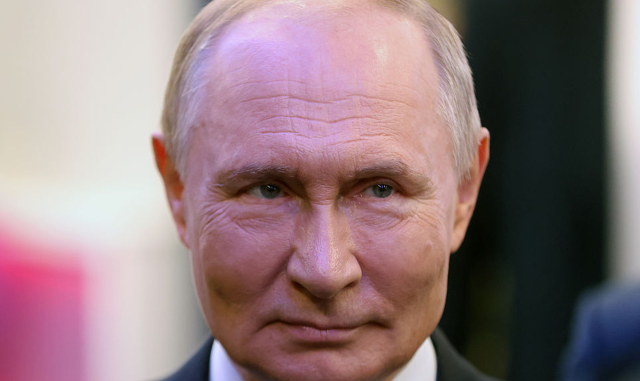
| Published September 5, 2025
Russian President Vladimir Putin has extended an invitation to Ukrainian President Volodymyr Zelensky to meet in Moscow, signaling a potential shift in the ongoing conflict. Putin expressed openness to peace talks, stating he has “never refused this” and that a meeting should be “well-prepared and can lead to some positive potential outcomes.” He added that U.S. President Donald Trump had inquired about such a meeting, to which Putin affirmed its possibility if Zelensky is willing to come to Moscow.
However, Zelensky has dismissed the offer, citing Russia’s recent military actions as a contradiction to genuine peace efforts. He sarcastically remarked that the invitation to Moscow seemed designed to prevent a meeting. Ukrainian Foreign Minister Andrii Sybiha echoed this sentiment, highlighting that multiple countries, including Austria, the Holy See, Switzerland, Turkey, and several Gulf states, have offered to host peace talks, but Putin’s proposals remain unacceptable.
The timing of Putin’s invitation coincides with intensified Russian military actions. On the same day, Russia launched a significant attack on Ukraine, deploying 502 drones and 24 missiles, resulting in damage across various locations, including Kyiv. Ukrainian forces managed to intercept a substantial number of these projectiles, but the strikes have been condemned as attempts to undermine diplomatic efforts and exert pressure on Ukraine and its allies.
In response to the escalating situation, President Zelensky met with European leaders in Paris to discuss security guarantees for Ukraine, emphasizing the need for concrete outcomes from any potential peace negotiations. While the invitation to Moscow may indicate a willingness for dialogue, the recent military actions and the context of the offer suggest that the path to peace remains fraught with challenges.
 Implications
Implications
🔹 Geopolitical Implications
-
Potential Shifts in Peace Negotiations: Putin’s invitation to Zelensky could signal a nominal willingness for dialogue, but the timing amid intensified attacks undermines trust, complicating the negotiation landscape.
-
Influence on European Security: European leaders remain cautious. Increased Russian aggression and the insistence on Moscow as a venue may force NATO and EU members to reconsider defense postures, troop deployments, and security guarantees for Ukraine.
-
US-Russia-China Dynamics: Trump’s push for sanctions against Russia and pressure on China reflects broader strategic considerations, as the conflict could influence global energy markets and alliances.
🔹 Military Implications
-
Escalation Risk: Launching hundreds of drones and missiles while extending a peace invitation suggests a dual strategy: diplomatic signaling while maintaining military pressure. This could deter third-party mediators from acting or encourage escalation.
-
Targeting of Foreign Forces: Putin’s declaration that any foreign troops in Ukraine would be legitimate targets heightens risk for potential international peacekeepers, limiting neutral venues for mediation.
🔹 Domestic Implications
-
Ukrainian Morale and Politics: Zelensky’s rejection of the Moscow proposal reinforces his domestic image as resistant to Russian pressure, but ongoing attacks strain infrastructure and civilian morale.
-
Russian Public Perception: The Russian government may frame the invitation as a sign of diplomatic openness, even amid military strikes, bolstering nationalist support domestically.
🔹 Diplomatic Implications
-
Trust Deficit: The combination of military escalation and an invitation to Moscow deepens skepticism among Ukraine and international stakeholders, making meaningful talks more difficult.
-
Role of Third-Party Mediators: Countries like Turkey, Switzerland, and Austria could become more central as neutral venues for negotiations, but Russia’s insistence on Moscow could stall progress.
🔹 Economic Implications
-
Energy and Trade Pressure: Threats to Europe’s energy security via continued Russian aggression could accelerate efforts to diversify energy sources, affecting global oil and gas markets.
-
Sanctions and Economic Isolation: Continued military actions alongside diplomacy may influence the scope and intensity of economic sanctions on Russia, potentially impacting Russian and global markets.
 Overall Takeaway:
Overall Takeaway:
The recent invitation from Russian President Vladimir Putin to Ukrainian President Volodymyr Zelensky to meet in Moscow represents a complex and ambiguous diplomatic maneuver. While it outwardly signals a willingness for dialogue, the timing—coinciding with large-scale drone and missile attacks on Ukraine—casts serious doubt on the sincerity of the overture.
Ukrainian leaders have rightly viewed the offer with skepticism, emphasizing that genuine peace negotiations require neutral venues and trust-building measures rather than symbolic gestures. International reactions further highlight the challenges: European leaders remain divided, and the U.S. continues to press for both pressure on Russia and broader geopolitical leverage involving China.
The dual strategy of military aggression alongside proposed diplomacy illustrates the difficulty of achieving a meaningful resolution. Without concrete confidence-building measures, neutral mediation, and verified cessation of hostilities, the path to peace remains fraught with obstacles. The current situation underscores the broader geopolitical tension in Europe and the precarious balance between diplomacy and military escalation.





Be the first to comment